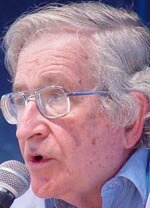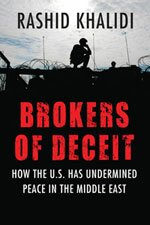Rashid Khalidi: ‘This book is the most comprehensive and penetrating analysis available of the catastrophe that befell Arab Palestine and its people in 1948, known as the nakba. It shows how the expulsion and physical obliteration of the material traces of a people was followed by what Masalha calls ‘memoricide': the effacement of their history, their archives, and their place-names, and a denial that they had ever existed.’
History
Herein lies the Zionist left’s main international success: namely the framing of the conflict as being about war and peace between two equal parties, ‘two peoples who fight for the same territory’, rather than that involving colonisers and colonised… Included in this success is also the spreading of the idea of a conflict starting in 1967, with its fictitious semantic differentiation between ‘Israel proper’ and the ‘occupied territories’. These premises have for years succeeded in banishing the Israel-Palestine conflict to a completely different moral universe than other conflicts like Algeria, Vietnam or South Africa under apartheid.
A presentation at SUNY New Paltz entitled “Honoring Howard Zinn: An Historian Who Made History,” given on 4 December 2011.
The Road to Tantura is a gripping documentary film that follows a Los Angeles woman as she delves into the history of her family’s past. In 1948, her family was ripped from their homeland of Palestine, forced into refugee camps in Syria, and years later landed as immigrants in Ann Arbor, Michigan. By telling the story of one woman’s journey to her family’s past, this documentary offers a microcosm of the collective Palestinian experience that has been kept buried along with those who perished in Tantura that fateful day in 1948.
IOA Editor: For over 50 years, Tantura has been one of Israel’s most popular beaches; few Israeli-Jews are aware of its history.
Israeli protests in 2011 looked at first as if they constituted another link in the chain of militant uprisings sweeping the world in 2011. It seemed that the rage and indignation were directed against the disastrous doings of capitalist neo-liberalism which resulted in a vast enrichment of a very small elite, along with a drastic deterioration in living conditions and increased poverty. However, the nature of Israel as a settler-colonial state in which neo-liberalism and privatization were supported by Labor and the General Federation of the Workers determined the decisively different character and development of last summer’s protest.
In this wide-ranging interview, Rashid Khalidi has some harsh words for President Barack Obama, describing his UN speech in September as the worst ever by an American president. Khalidi also reviews the way in which US policy toward the conflict was transformed over decades, and discusses why AIPAC (the American Israel Public Affairs Committee) is far more effective today than it was in the 1970s and 1980s. Although he sees no hope at present for a just US policy, this could change if public opinion – which is much more enlightened than that of U.S. policy makers – is expressed through the media and at the political level.
The Jewish National Fund (JNF), that ownes 13% of Israeli lands, forbids the sale or lease of its lands to any but Jewish owners. Many are now joining a global campaign against this policy whose roots come from expropriated Palestinian Land. The Real News’ Lia Tarachansky looks at the history of JNF land acquisition from the land taken from 1948 refugees in the village of Ma’alul, 1967 refugees on whose land Canada Park was built, and the Bedouins of Al Araqib on whose land the JNF is attempting to build the Ambassador’s Forest.
IOA Editor: An outstanding report by Lia Tarachansky where she puts current events in their historic, political, institutional, and legal context: How the repeated destruction of the Beduin village of al-Araqib fits in the Palestinian history of the Nakba, post-1948 confiscation of Palestinian lands within Israel, and the destruction of the Latroun villages after the 1967 War — all with the full involvement of the Jewish National Fund (JNF), a tax-exempt organization in the US.
Salim Tamari discusses his recent book, Year of the Locust: A Soldier’s Diary and the Erasure of Palestine’s Ottoman Past, and puts it in today’s geopolitical context.
False Prophets of Peace refutes the long held view of the Israeli left as adhering to a humanistic, democratic and even socialist tradition, attributed to the historic Zionist Labor movement. Through a critical analysis of the prevailing discourse of Zionist intellectuals and activists on the Jewish-democratic state, it uncovers the Zionist left’s central role in laying the foundation of the colonial settler state of Israel, in articulating its hegemonic ideology and in legitimizing, whether explicitly or implicitly, the apartheid treatment of Palestinians both inside Israel and in the 1967 occupied territories.
Start with fragmentation. When talking about Israel refer to a mythical state that existed between November 1966 and June 1967, the only period during which the majority of Palestinians living under Israeli control were NOT subject to military rule.
Noam Chomsky has been awarded this year’s Sydney Peace Prize, Australia’s only international peace prize. In his City of Sydney Peace Prize Lecture, “Revolutionary Pacifism: Choices and Prospects,” Chomsky covers activist A.J. Muste’s concept of “revolutionary pacifism,” the principle of universality, and the long history of violent US behavior around the world, including the Middle East.
US Likudniks, who had remained relatively restrained on [book talks] until now, could not stand it any longer. They launched a massive attack against me in the form of a smear article … written by two Campus Watch vigilantes and first published on FrontPageMag… From there, the article was reproduced by countless websites and blogs belonging to the same ideological swarm, and distributed by them to their extensive email lists.
Assailants spray paint Mamilla Cemetery headstones with the slogans ‘Death to Arabs’ and the name of a settlement outpost slated for demolition. This is only the last in a series of violent activities against Palestinians and Israeli anti-Occupation activists.
IOA Editor: Mamilla Cemetery, a historic Jerusalem and Muslim landmark, has now been relegated by a junior Haaretz journalist to a site “next to the [yet-to-be-built] Jerusalem Museum of Tolerance.” The cemetery, containing centuries of Palestinian history, has been desecrated for decades by Israeli governments intent on eradicating Palestinian history. The museum, representing a distorted view of Jewish history, and imported from the US, is intended to physically replace yet another bit of Palestinian history — in Jerusalem, the very heart of Israeli-Palestinian contention. The Mamilla Cemetery case is crucially important: it is a very real, yet also a very symbolic, representation of Israeli ethnic cleansing in action.
Gilbert Achcar is Professor of Development Studies and International Relations at the School of Oriental and African Studies of the University of London; his latest work is The Arabs and the Holocaust: The Arab-Israeli War of Narratives. Achcar discusses what he calls the “Nazification” of the Arabs, what implications this narrative has had on the past and present political situation in the Middle East, and some of the context from which anti-Semitism and Holocaust-denial has taken root in a segment of Arab society.
The US and Israel have both been intent on forestalling the appearance of the Palestinian Authority before the UN, in case it succeeded in winning support for its unilateral declaration of Palestinian independence. This is a reversal of history: in 1948, the US regarded the prospect of an Israeli declaration of independence as a threat to its interests in the region, and the State Department, Defence Department and CIA were worried about such an outcome.
The mainstream of the Jewish public decided on its own, and without much internal reflection, that social justice could exist alongside a system of ethnic exclusivism. Thus, while the July 14 movement proceeded through cities across Israel bellowing out cries for dignity and rights, Palestinians remained safely tucked away behind an elaborate matrix of control — the Iron Wall. Ten years of separation had not only rendered the Palestinians invisible in a physical sense. It had erased them from the Israeli conscience.
IOA Editor: A very important article that puts Israel’s July 14 protest movement in an historical context: the Zionist settlement in, and occupation of, Palestine — before and after 1967. So far, there is no evidence that the massive wave of Israeli Jews calling for “social justice” has any intentions of improving the lives of Palestinian citizens of Israel. And it is absolutely clear that ending the Occupation is not on its agenda either.
Sygmunt Bauman: “Israel does not see the missiles falling on communities along the border as a bad thing. On the contrary, they would be worried and even alarmed were it not for this fire.”
Moshé Machover: “He had precisely what we lacked then – a consistent and comprehensive grasp of the Zionist settlement process and especially its impact on Arab society in Palestine. We acquired from him a deeper, more complete conceptualization of Israel as the realization of Zionist settlement. He also grasped the Arab Revolution as one indivisible process.”
Yasmin Dahr and Eilat Maoz put Israel’s July 14 Movement in its proper historical, social, and political context – something the protest movement’s loosely structured leadership has, so far, insisted on avoiding. Important analysis. (HEBREW)
What will the Palestinians do at the UN in September? The question appears to haunt Washington and Tel Aviv as they prepare to block Palestinian attempts to obtain UN recognition, as though the very idea of such action represents a form of political impudence that merits the harshest international rejection. Sober accounts by Palestinians of what they may expect from a trip to the UN have done little to allay the dark cloud of suspicion that is fostered in mainstream accounts.























